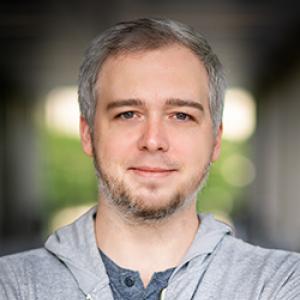
Christopher Donnelly, DDS, PhD
Contact
Assistant Professor in Anesthesiology
Assistant Professor in Pharmacology and Cancer Biology
Assistant Professor of Neurobiology
Faculty Member, Duke Cancer Institute
Faculty Member, Duke Institute for Brain Sciences
Duke University School of Medicine
Adjunct Assistant Clinical Professor, Department of Biologic & Materials Sciences, University of Michigan School of Dentistry
Neuroimmunology and Applied Pain Research Lab
Center for Translational Pain Medicine
Profiles
Google Scholar
Scholars@Duke
Background and Research Interests
I am a dentist and a scientist, with a multidisciplinary research program that encompasses pain and sensory biology, immunology, and cancer biology. I completed my DDS/PhD training at the University of Michigan. I conducted my dissertation research in Dr. Brian Pierchala’s lab, which was focused on understanding the signaling pathways that regulate the development, diversification, and postnatal physiology of peripheral neurons, which led to new insights about pain-sensing sensory neurons (termed nociceptors), orofacial chemosensory and somatosensory neurons, and autonomic neurons. As I began to engage in clinical work as a dental student, I also became interested in oral and maxillofacial pathology, which led me to conduct translational research in Dr. Yu (Leo) Lei’s translational immunology lab, where I was able to contribute to several important studies aimed at understanding the factors regulating the immunogenicity of the tumor microenvironment in head and neck cancer. For my postdoctoral studies, I merged my research interests in neuroscience and immunology with my clinical background as a dentist by pursuing a postdoc with under the mentorship of Dr. Ru-Rong Ji (pain and neuroimmunology) and the late Dr. William Maixner (translational pain research) in the newly formed Center for Translational Pain Medicine at Duke, where I ultimately stayed to build my own independent research program (the Neuroimmunology and Applied Pain Research Lab).
My long-term career goal is to positively impact the way we treat pathological pain conditions such as cancer pain, chronic primary pain conditions (e.g., temporomandibular joint disorders), and neuropathic pain. I work towards this goal by participating in the education and training of future scientists and healthcare professionals, and by building and fostering a lab team that produces high-quality science focused on clinical translation. Developing new therapeutics for pathological pain conditions is our overarching goal, and I believe that meaningful translational advances require interdisciplinary team-science-based approaches to untangle the molecular pathways, cell types, and neuronal circuits involved in pain and inflammation using preclinical models and in clinical cohorts. Much of our current work is focused on the molecular crosstalk between sensory neurons and non-neuronal cell types, such as immune cells, glial cells, cancer cells, and microorganisms. We believe this will help unravel the mechanisms underlying the bidirectional causality of pain and inflammation, yielding new immunotherapeutics and neurotherapeutics to treat pain and painful inflammatory conditions.
Beyond my research interests, I’m passionate about educating future members of the healthcare workforce, including medical students and dental students. I serve as an Adjunct Clinical Assistant Professor at the University of Michigan, where I am the course director of DENT 537: Introduction to Neuroscience for first-year dental students. I am also active in several professional societies including the United States Association for the Study of Pain, the International Association for the Study of Pain, the Society for Neuroscience, the American Association for Dental, Oral, and Craniofacial Research and its international affiliate (AADOCR & IADR), and the American Association of Immunologists.